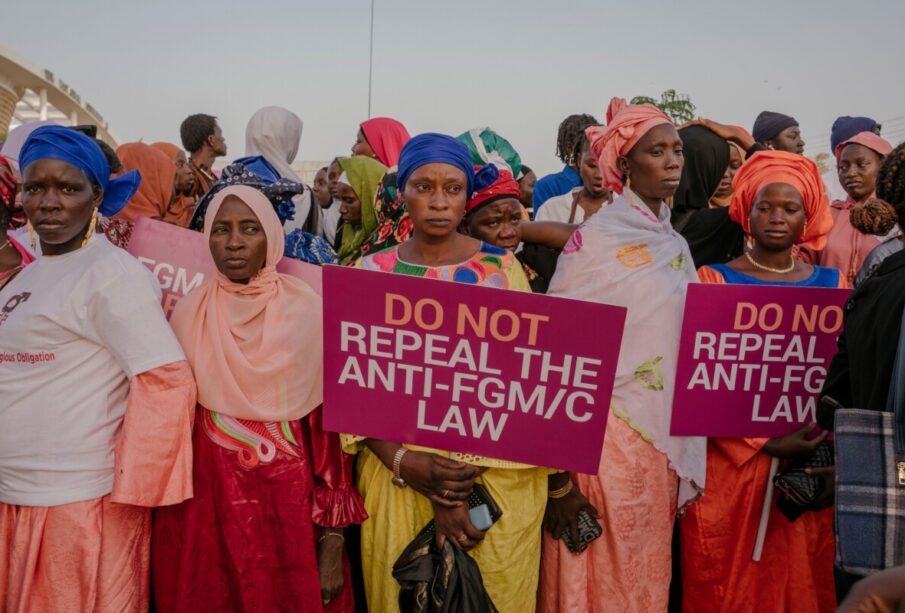
On Monday, March 18, 2024, lawmakers in Gambia deliberated on a bill aiming to repeal the ban on female genital mutilation (FGM), which would make the West African nation the first country anywhere to make that reversal.
FGM, involving the partial or complete removal of external genitalia, is typically conducted by traditional community practitioners using tools like razor blades or occasionally by health workers.
Frequently inflicted upon young girls, this erroneous practice is thought to regulate female sexuality, yet it can result in severe bleeding and fatalities. Sadly, it persists as a prevalent tradition in various regions of Africa.
The United Nations estimates that over half of women and girls aged 15 to 49 in Gambia have undergone female genital mutilation (FGM). Supported by religious conservatives in the predominantly Muslim nation of fewer than 3 million people, the bill aims to maintain religious purity and preserve cultural norms and values, as stated in its text. The country’s primary Islamic authority has labelled the practice as “one of the virtues of Islam.”
Former Gambian leader Yahya Jammeh unexpectedly banned the practice in 2015, surprising activists and offering no public rationale. However, law enforcement has been feeble, with only two cases prosecuted since its implementation.
Earlier this month, UNICEF reported that approximately 30 million women worldwide have undergone female genital mutilation (FGM) over the past eight years, with the majority occurring in Africa, but some cases also found in Asia and the Middle East.
According to a World Bank study referenced in a United Nations Population Fund Q&A published this year, over 80 countries have laws either banning the procedure outright or permitting its prosecution.
Leave a reply
You must be logged in to post a comment.












